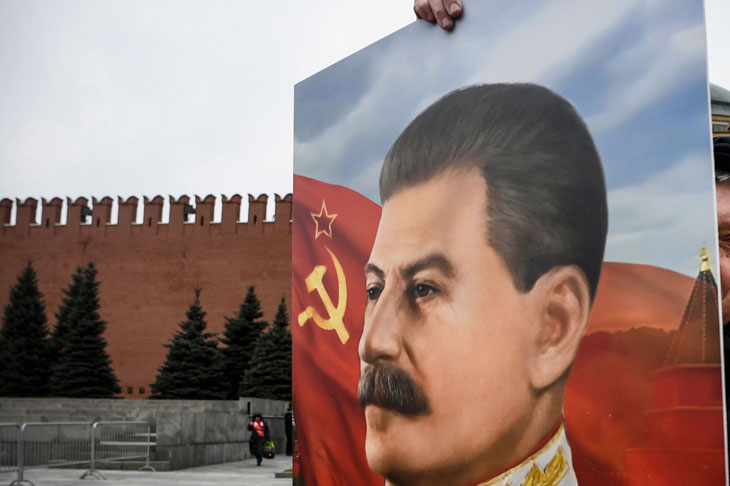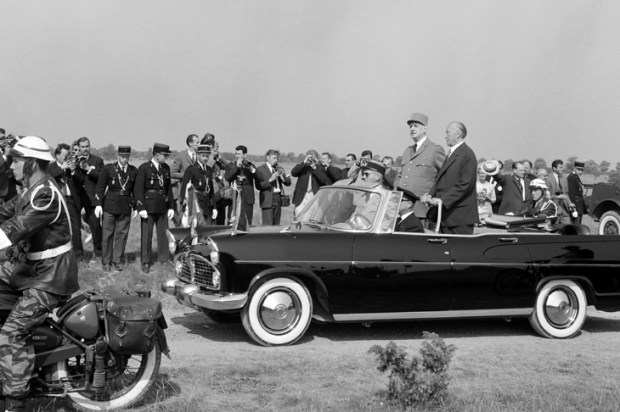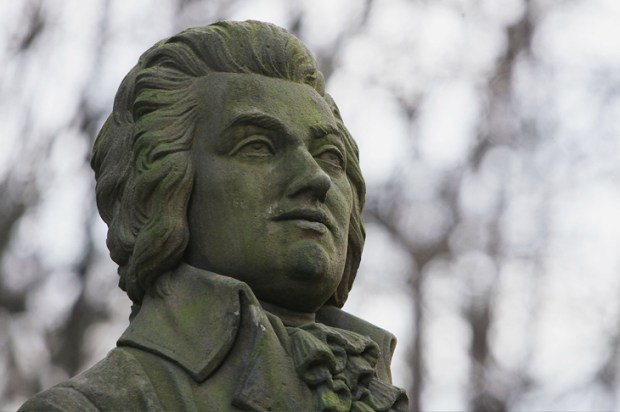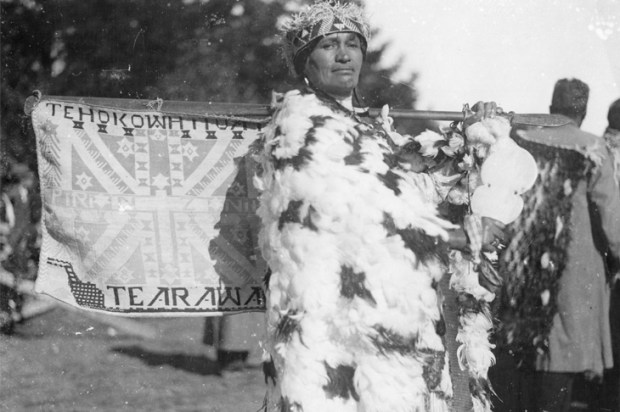In a truly excellent article in the Australian, Stephen Loosley reminded us – in my case rather appropriately – of the days of the so-called Cold War which prevailed largely between the USSR and the United States and its allies between 1949 and 1989. Clearly anyone now in their twenties will have no experience of that era and is thus in no particular position to grasp any similarities between what Loosley describes as a ‘post-Covid environment’ and the now bygone Cold War.
For me however circumstances are rather different. In fact I was still at my English boarding school in 1949, yet by 1954 was directly facing Soviet troops even before the Berlin Wall was built on a front line situated on the Luneberg Heath in Northern Germany. It was absolutely clear by then that our war-time Russian allies were at best extremely temporary friends of the West. In truth communism has no time at all for Western democracy and prior to 1989 such feelings were largely mutual. Following 1989 however to my and their delight all manner of East European countries celebrated their escape from the communist fold: Poland, East Germany, the Baltic States, Hungary, Romania, the Czech republic, Slovakia, former Yugoslavia and even possible elements within the USSR itself. Even China enjoyed a brief flirtation then with a system that was once not fully totalitarian.
I came to Australia in 1995 and have never ceased to be amazed by the extent that fundamentally totalitarian systems are positively embraced here often through our universities, schools and other elements of our public services. Australia certainly experienced the second world war at first hand yet not with the intimacy which prevailed in Europe or the United Kingdom. For a significant slice of the early part of the war Britain had every expectation of being invaded; in essence the USA did much to save the non-Axis West and also to help limit Russia’s intrusion into Europe – although they could perhaps have done this rather more effectively under a different leader than Roosevelt. But who even begins to understand such matters today?
If you care to look at British politics following the second world war communism in any open form played a negligible role although British heavy industry was systematically white-anted by ‘red’ elements within relevant trades unions.
As I was growing up I knew few people who had not experienced the second world war or its aftermath for themselves – in the case of males largely within the armed services. Church attendance was much more common then and I attended a devoutly Anglican boarding school myself. In those days, communism was an ever-present enemy rather than a trading partner or source of a major influx into one’s universities. Recently I have come to know a brilliantly inquisitive Australian ex-lawyer who to my astonishment had never read the massive tome The Black Book of Communism which was published in its English translation by Harvard University Press back in 1999. How can anyone possibly understand the 20th century fully without access to its 857 pages? If I ran the now largely sidelined Ramsay Foundation, I would instantly provide every student in Australia with a copy. Never to have read that book is a close equivalent to sleepwalking. The final chapter of the book comprises just 30 pages and is appropriately called WHY?
Were you, supposing this great tome to be unfamiliar to you, simply to read that single chapter – rather than the preceding 725 blood-curdling pages – you will undoubtedly be a better and better-informed human being as a result. Even if history is not your strong point the fact that the French Revolution in all its horror set such an obvious example for Leninist Bolsheviks to follow must still be obvious. My own ancestry is French and I regularly express my detestation of the history of France by refusing to stand for their obscene and outdated national anthem. If you are not a French speaker yourself do you have even a remote grasp of the meaning of its words?
Communism proceeds in the long run always by force and never by rational persuasion. At this strange post-Covid moment, Australia needs to re-affirm itself as a rightly valued part of the Western world. Until last Christmas I wrote a monthly column for 17 years for the now sadly deceased Australian Catholic magazine Annals. Unlike me its late editor Fr. Paul Stenhouse was born in Australia yet our understanding of the manner of this country’s unnecessary decline in recent times was more or less identical. Australia is a worthwhile nation with an often admirable history which stands at this moment at a turning point. If we do not resume control of our culture, education and civil law in the near future almost everything which distinguishes us will evaporate. Because I worked in a wide variety of countries before coming here it is possibly easier for me to spot agents of international decline than those who have been less fortunate. Karl Marx was fully aware that he could never entirely destroy Western democracy without first undermining the vital importance to it of the family and Christianity. Obviously those working tirelessly today for such hostile causes do not indentify themselves to the rest of us as such. Review now every aspect of so-called post-modernism in your mind and consider its effect on the society you know: political correctness, feminism, transgender issues, racism, post-colonialism, deconstruction and a whole host more. How does each affect a traditional and workable society? Racism has always tried to replace the relative insignificance of skin colour for the infinitely more important issue of belief. The trick is infantile in essence yet the most elementary psychological con-man can today point almost all of us in the wrong direction. Thus do you somehow believe that socialist extremism somehow represents a ‘fairer’system? If so, a 100 million people who lost their lives in the 20th century under communism would probably like a chat.
Got something to add? Join the discussion and comment below.
Get 10 issues for just $10
Subscribe to The Spectator Australia today for the next 10 magazine issues, plus full online access, for just $10.
You might disagree with half of it, but you’ll enjoy reading all of it. Try your first month for free, then just $2 a week for the remainder of your first year.















Comments
Don't miss out
Join the conversation with other Spectator Australia readers. Subscribe to leave a comment.
SUBSCRIBEAlready a subscriber? Log in